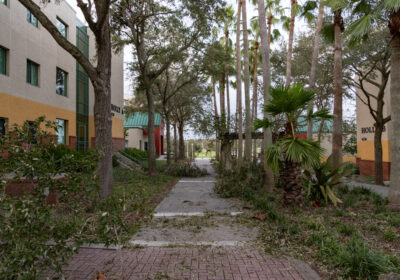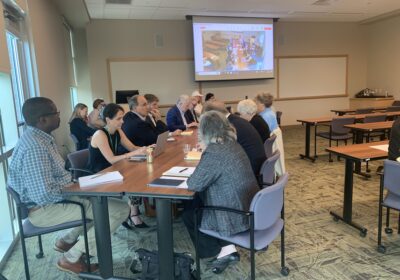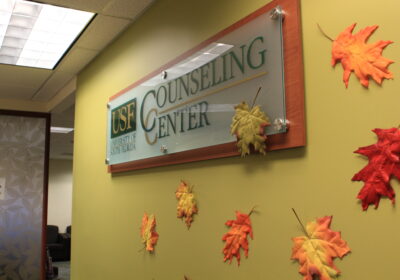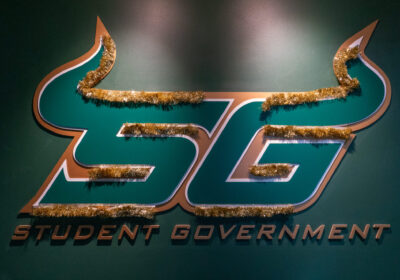Mass Comm students question dean’s decisions
For the first time since changes had been announced over spring break, College of Arts and Sciences Dean Eric Eisenberg, along with School of Mass Communications (SMC) Director Jim Andrews and Associate Director Kelli Burns, met with students in a town hall session open to all SMC students.
Eisenberg announced via email last month the school would no longer be pursuing accreditation from the Accrediting Council on Education in Journalism and Mass Communications (ACEJMC), and that interim director Gil Thelen had been replaced with Jim Andrews, director for the School of Information in an effort to pursue creating a more “cutting-edge, digital” program.
Students at Thursday’s town hall came prepared with questions.
Some wanted to know if they could get backpay on tuition or whether they could automatically transfer to the St. Petersburg campus, which retains its ACEJMC accreditation until 2016.
Eisenberg said if it was something important to students, he would inquire about it, but encouraged students to stay at the Tampa campus. Unlike the Southern Association of Colleges and Schools (SACS) accreditation, ACEJMC accreditation is voluntary and wouldn’t make as much of an impact to future employers or graduate schools, he said.
“USF St. Petersburg is much smaller,” Burns said. “USF’s main campus has a much better reputation.”
Others asked why the decision was made without the consultation of faculty. Eisenberg said some faculty were consulted, but students asked for a list of the names of faculty who were consulted, which he said would be inappropriate to provide in such a forum.
Eisenberg explained that the decision had been one that had been discussed for years, but ultimately came to fruition after ACEJMC site team visited campus in January, and put USF on two years of provisional accreditation, based on deficiencies in “governance” and “assessment.”
Burns said the school would rather focus its energies on developing a more “cutting-edge” curriculum than focusing on the accreditation process, which she said is time-consuming and tiring.
“Instead of spending time focused on assessment, I would rather focus on building curriculum,” she said. “I don’t want to focus on teaching to tests and assessment.”
One student asked why Gil Thelen had been dismissed and whether he had been given “adequate authority” to lead the department.
Eisenberg said he thought it was inappropriate to answer the question at the forum.
According to emails received through a public records request, Thelen was appointed to a three-year term as permanent director for the school and an external assessment expert had been hired in hopes of reversing the provisional status of accreditation, something which would have been discussed at an ACEJMC conference in Chicago last month and voted on in Phoenix later this year.
“We have a 50-50 chance of pulling this off, but it is very, very, very delicate,” Jay Friedlander, former director for the School of Mass Communications and accreditation consultant, said in an email to Eisenberg, of the School’s chances of receiving an overturned vote. “The wrong statement made in an elevator or a bar in Chicago could change the vote.”
Thelen said details of the contract were not settled upon, and that the contract he was presented with did not provide him with authority to lead the department.
According to the emails, Eisenberg stated that per collective bargaining agreements, supervisory authority would be granted to Burns.
“USF is a massive state bureaucracy,” he said in an email to Thelen. “Leading in this environment requires tremendous patience, more so for transformational leaders like yourself. I have had to learn to slow down and to gradually build support for my initiatives, and to get very familiar with arcane and often irrational processes that can be most frustrating … What I have learned from 20 years on the job at USF is that everything good happens in time, but it takes persistence and patience and teamwork.”
According to the emails dating from February to March, Thelen and Eisenberg exchanged dialogue back-and-forth about the scope of authority, with subject lines such as “…racing for Chicago.” Email exchanges through the same time period between Eisenberg and USF Provost Ralph Wilcox reflected dialogue about the pros and cons of accreditation, and whether it was something in USF’s best interest. 12






